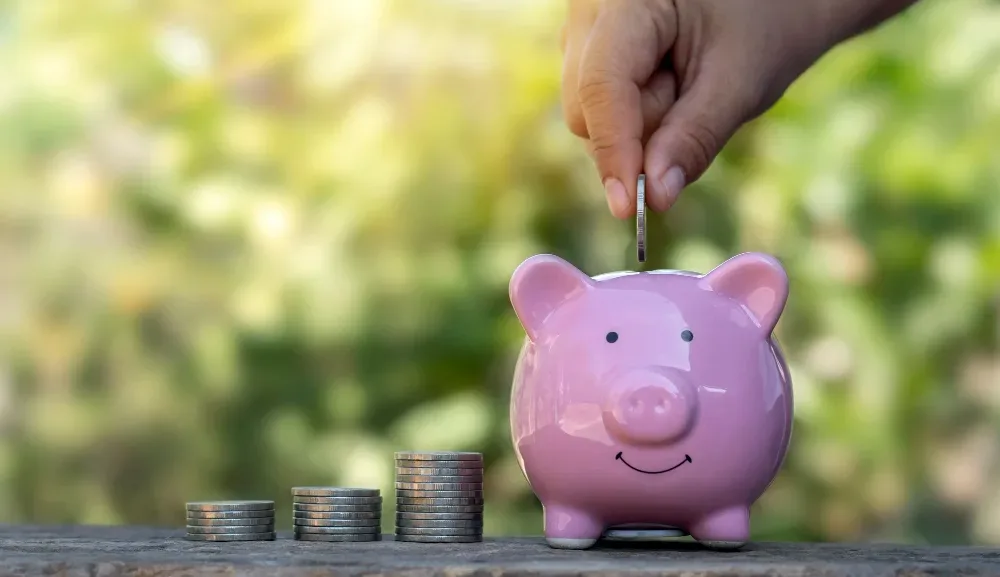Personal finance tips are often the quiet game-changer everyone wishes they’d learned earlier. These simple strategies turn paydays into lasting security, ease stressful “oh no” moments, and help small savings grow into meaningful life wins.
Most of us never had a “Money 101” class, so we figured things out the hard way. Imagine walking away with a straightforward plan that helps your money last longer, grows while you sleep, and keeps life steady when the unexpected happens.
No jargon, no complicated maths, just practical habits anyone can start today and stick with tomorrow. This guide aims to make money management less of a puzzle and more of a steady, helpful tool in everyday life.
The three-jar method
Think of money like three jars, even if they are just spaces in a banking app. One jar is for needs, the must-pay items like rent or mortgage, utilities, transport, groceries, and minimum debt payments. One is for wants, the non-essentials that add joy like meals out, small upgrades, subscriptions, or holidays. One is for the future, the big goals like an emergency fund, paying off debt, investing, or saving for a home deposit.
Each payday, split the money into these jars right away. The exact percentages are flexible, the habit is not. Automating transfers on payday turns “I will save what is left” into “I saved already,” which is the difference between hoping to save and actually saving.
Pay the future first

Most people try to save whatever is left over, and then nothing is left. Flip it. The moment salary lands, move a set amount into the future jar first. Even £20 or £50 a month compounds when done consistently.
Give each goal a name, like “Safety Net,” “Holiday 2026,” or “Mortgage Overpay,” so every transfer feels like progress, not a punishment. Saving first lets spending happen without guilt because the priority was already handled. These are the personal finance tips that turn saving from a chore into a habit, because the system does the work for you, not willpower.
A tiny shield for rainy days
Life throws problems at the worst times, a tyre blowout, a boiler repair, a phone that dies, or a bill that comes early. A small emergency fund is a shock absorber. Start with any amount. Aim for £250, then £500, then one month of core expenses, and slowly build towards three months.
Keep it easy to access but separate from day-to-day spending. When trouble shows up, the fund pays first, not a credit card. That calm, “it is handled,” feeling is worth more than the number in the account. Just after the midpoint of any money plan, one of the most practical personal finance tips is to protect progress with this tiny shield so growth does not get wiped out by a single bad week.
Spend smarter with a pause
Good spending is not about saying no to everything, it is about pausing on purpose. Use a 10-second rule for small wants, ask yourself, “Do I want this more than my bigger goal?” If yes, enjoy it. If not, skip it and move on.
For bigger buys, use a 24-hour rule. Leave it in the basket, walk away, and decide tomorrow. If it still feels right, it probably is. These tiny pauses protect the budget without feeling strict and make room for the things that actually matter.
Make money grow, slow and steady
Saving keeps money safe for the near future. Investing helps money grow for later. After building the emergency fund, drip money into a simple, low-fee, globally diversified fund each month and let time do the heavy lifting.
There is no need to predict markets or chase hot picks. Automate contributions, review once or twice a year, and leave the rest alone. Steady monthly investing plus time beats last-minute heroics most of the time.
Talk about money, win at money

Money gets easier when it is not a secret. Do a 20-minute “money check-in” once a month, solo or with a partner. Look at balances, bills, and goals, then pick one small improvement for the next month, cancel a forgotten subscription, round up an investment, nudge an overpayment, or rename a goal to keep it exciting.
Celebrate small wins. Confidence comes from repetition, not perfection. One paragraph before the ending is the perfect place to share personal finance tips that actually worked for you, because talking about simple wins makes them stick.
The quiet power of good habits
Being good with money is not about being a genius, it is about calm, repeatable habits. Save first, spend what is left, keep a small shield for surprises, and let time grow what is invested. Clear debt with a simple plan, talk about money kindly, and keep the system light enough to live with.
What matters most is consistency and patience, not complexity. The choices may feel small today, but over time they become a foundation of stability and freedom. Do that, and future you will be very glad the present you chose to begin.
